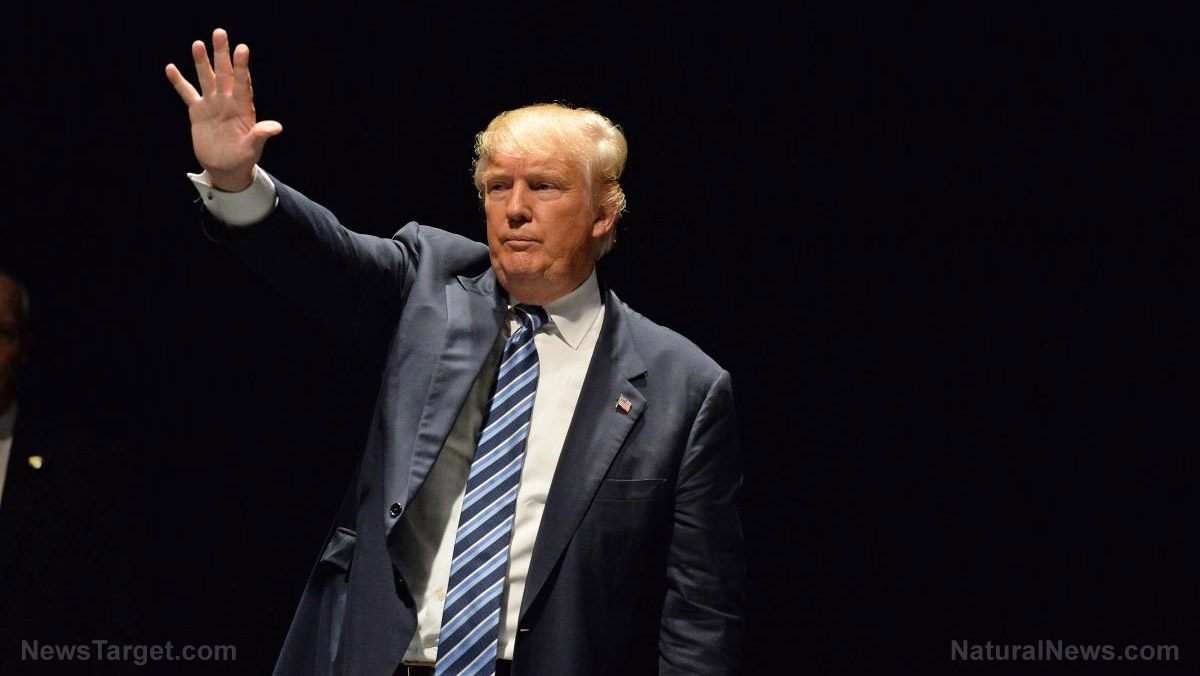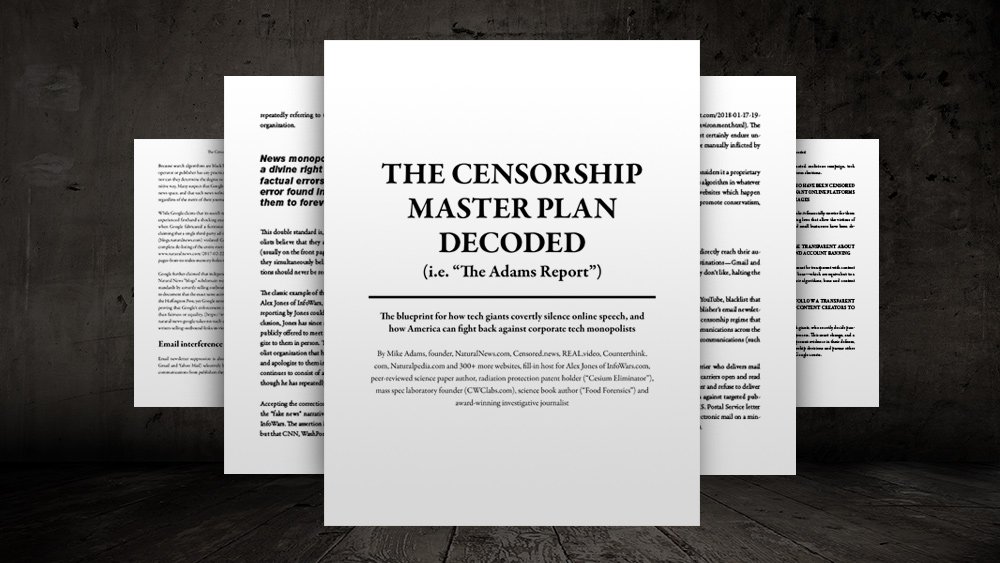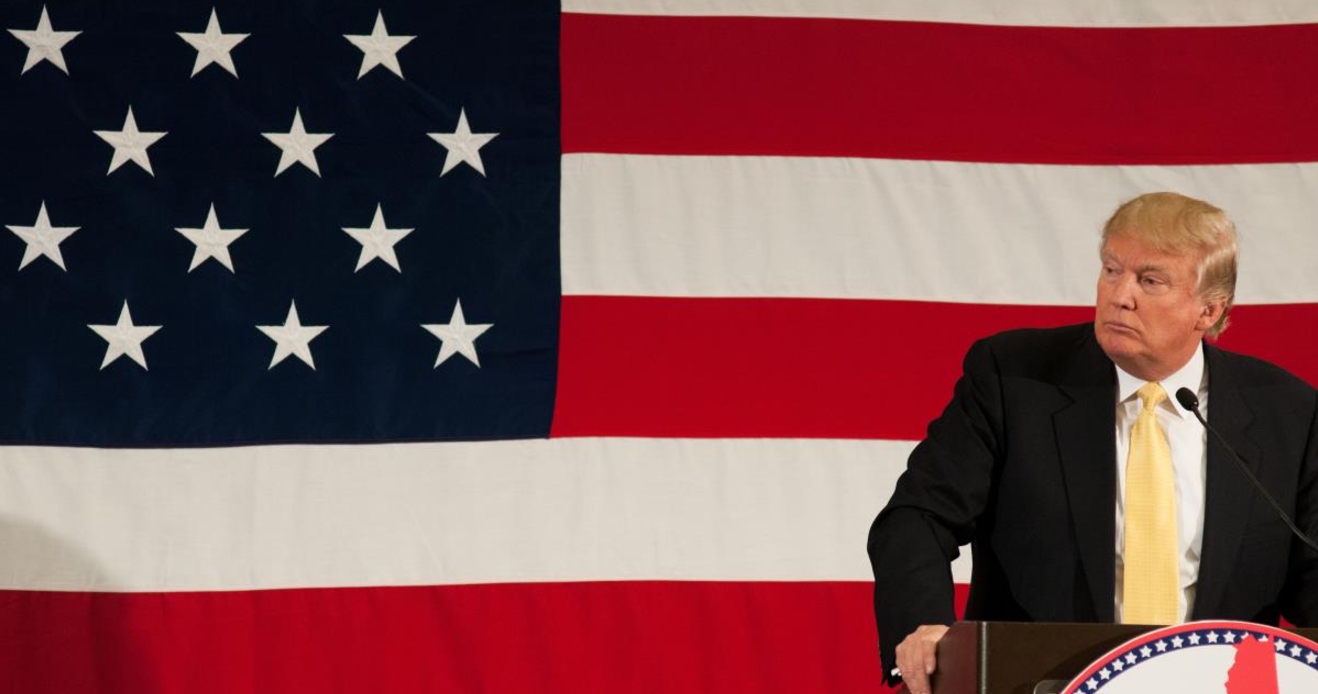You should love what some GOP presidential candidates are saying about cutting regulations
11/23/2015 / By usafeaturesmedia

(Freedom.news) The exponential growth of the federal bureaucracy has become massively expensive tool that subsequent administrations have utilized to choke liberty and squeeze industry and commerce.
So it’s refreshing to hear, in recent days, a growing number of Republican presidential candidates seriously addressing the issue of regulatory reform with specific proposals to cut the Administrative State’s size and scope.
In no particular order, here are what some of the candidates are proposing:
— Gov. Chris Christie: “I will also, on my first day as president, sign an executive order that says no more regulation for the next 120 days by any government agency or department … We are drowning in regulations. Stop, and then we will go out there and cut and reduce regulation that small-business owners across this country want us to do.”
That sounds good – and it’s a bold promise, for sure. But if elected president, we would hope that he follows up on the moratorium with an honest evaluation of the nation’s current regulatory burden, estimated at nearly $2 trillion a year (with a federal debt larger than the annual GDP of China).
— Dr. Ben Carson: “What we’ve done now is let the creep of regulation turn into a stampede of regulations, which is involved in every aspect of our lives. If we can get that out, it makes a big difference. And even for the average person, every single regulation costs money. And it’s shifted to the individual.
“It hurts the poor and the middle class much more than it does the rich. They go into the store and they buy a bar of soap, it costs 10 cents more, they notice it. And the middle class, when they come to the cash register, have a whole cart full of things that cost five, 10 or 15 cents more, they notice it. It is hurting the poor.”
Carson was a little short on details, but he’s absolutely right in that a crushing federal regulatory apparatus hurts the most economically challenged. This is especially true when states and the federal government mandate that businesses pay higher “minimum” wages.
— Sen. Marco Rubio, Fla.: “Do you know why these banks are so big? The government made them big. The government made them big by adding thousands and thousands of pages of regulations. So the big banks, they have an army of lawyers, they have an army of compliance officers. They can deal with all these things. The small banks, like Governor Bush was saying, they can’t deal with all these regulations… They cannot hire the fanciest law firm in Washington or the best lobbying firm to deal with all these regulations… . And in Dodd-Frank, you have actually codified ‘too big to fail’ … .We need to repeal Dodd-Frank as soon as possible.”
Rubio was right to name a specific regulation or, in the case of Dodd-Frank, a set of regulations which included the creation of a new, powerful federal agency – the Consumer Financial Protection Bureau – which Democrats who wrote and passed the measure ensured could essentially operate with little congressional oversight. By one estimation, the law has added nearly $7 billion in costs to the banking industry – costs that, of course, are passed onto banking customers via higher fees and interest. And while big banks have the resources to handle those additional costs, smaller community banks do not and, as such, they are slowly vanishing.
— Sen. Rand Paul, Ky.: “The first thing I would do as president is repeal the regulations that are hampering our energy that the president has put in place, including the Clean Power Act.”
Currently nearly half of states are suing the Obama administration in federal court to stop those regulations from taking place. But in the meantime, the energy industry has to deal with this massive new layer of rules, and that means sharp rises in compliance costs – costs that get passed along to consumers who are already being squeezed by higher costs in dozens of other sectors, as well as chronically stagnant wages.
For the record, Watchdog.org reports that under the new clean power rules, energy costs are expected to rise nearly $300 billion a year; electricity rates are expected to dramatically rise in 47 states (just like Obama promised in 2008) – and in the end, will have a negligible effect, if any, on so-called “global warming.”
— Carly Fiorina: “In addition to rolling back what President Obama has done, we need to do a top-to-bottom review of every single regulation on the books. That hasn’t been done in 50 years. We need to pass the REINS Act so Congress is in charge of regulation, not nameless, faceless bureaucrats accountable to no one. We’ve become a nation of rules, not a nation of laws.”
For the record, Congress has a “say” in the regulatory process, but it is seldom utilized successfully – and both parties are to blame. According to the Government Accountability Office (GAO), the Congressional Review Act “allows Congress to review “major” rules issued by federal agencies before the rules take effect. Congress may also disapprove new rules, resulting in the rules having no force or effect. 5 U.S.C. § 802(a).” The law applies to any new “major” rules, and those are defined as rules that will cost more than $100 million to implement and would impose major new costs on consumers.
How does the process work? “Under the CRA, Congress can pass a joint resolution of disapproval relating to a rule. 5 U.S.C. §§ 801(a)(3)(B), 802. Since 1996, 43 resolutions have been introduced in the Senate or House of Representatives and two of those resolutions have passed one house of Congress.”
But, “only one rule, the Department of Labor rule on ergonomics (65 Fed. Reg. 68,262), has been disapproved by Congress (see Public Law 107-5),” the GAO said.
The REIN Act would be different, in that it would actually require Congress to approve major new regulations, not merely vote to disapprove them. Fiorina is the only major candidate to have brought up the proposal thus far.
See also:
http://watchdog.org/246727/gop-debate-regulatory-reform/
http://freebeacon.com/issues/report-cost-of-federal-regulation-reached-1-88-trillion-in-2014/
https://www.youtube.com/watch?v=HlTxGHn4sH4
Tagged Under: GOP presidental candidates




















